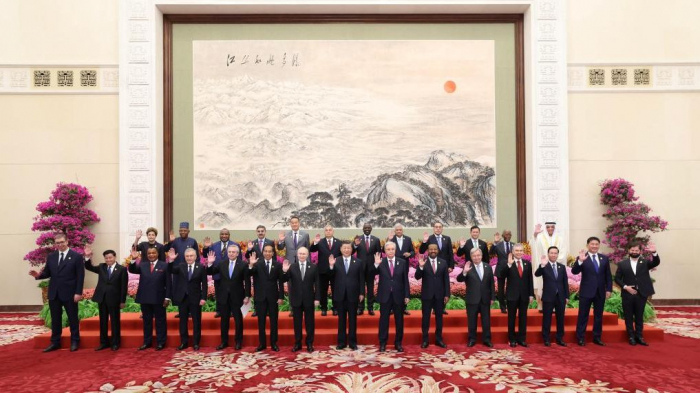An article about the Chinese economy written by Kerry Brown, a professor of Chinese Studies and Director of the Lau China Institute at King's College in London was published on CGTN.
AzVision.az presents the article:
'For almost two decades, certain Western experts and institutions have been predicting China's economic collapse. But in this period, China has continued its growth – with ups and downs as in all the economies.
Pessimistic voices cannot evade the fact that we are already partly in a world where China will become the No.1. In some areas of the planet – quite a large number in the Global South – China is as important as the United States, maybe more so.
Western economists in their predictions of the Chinese economy have been mostly wrong. They have been overly pessimistic and have not really read the situation correctly. Admittedly, the Chinese economy has vulnerabilities as of today, but clearly, it has great strengths. It is complicated and cannot just be dismissed with the "collapse" theory.

Some Western economists are quite dramatic when it comes to China. It is an interesting phenomenon that these economists do not really talk about the collapse of the European or American economies, and prefer to use words like "challenges" and "structural readjustments" when it comes to Western economic performances. That is not what they do with China. They either think of the Chinese economy as booming or busting.
Such an extreme set of approaches stems from their views of China's changing position in today's world. The Western world, particularly the U.S., seems not prepared to acknowledge and accept the possibility of China becoming the No.1. Clearly, the U.S. is pushing back the dynamics of such a world where China has a dominant or an increasingly dominant space. By creating the Indo-Pacific concept, the U.S. is trying to create its own network of investment alliances.
This has contributed to a dual-track world. On the one hand, the United States needs alliances. This means countries such as Europe, Australia, and New Zealand are increasingly sticking together. On the other, there is a whole new set of partnerships that focus on building cooperative relationships with China.
Such a dual-track world is definitely a divided one. But at the moment it is manageable. These two broad kinds of blocks of different relationships are not necessarily in conflict with each other. They are just different to each other. Despite claims that China wanted to be a new hegemon, there is no sign showing that China wants to become like a new United States.
The West needs a pragmatic approach to deal with China. Given the massive inter-linkages between China and the United States, decoupling is not realistic. While there is already a dual-track world where the U.S. is not willing to share high-tech technology with China anymore, a slew of American companies have provided prime examples of how hard it would be to disengage their supply chains from China.
Apple, for instance, relies on global suppliers for the majority of its global procurement, manufacturing, and assembly businesses. Of its top 200 suppliers, 151 have production activities in China. The fact that China is a huge manufacturer will not be changed within decades. This means American companies have to source a vast amount of goods from China.
Instead of hyping the "China collapse" theory, U.S.-led Western countries have to work out a modus operandi – a way of working with each other – when it comes to China. The U.S. and China do not really have any choice, but to work with each other.'
Kerry Brown, a professor of Chinese Studies and Director of the Lau China Institute at King's College in London
More about:
















































